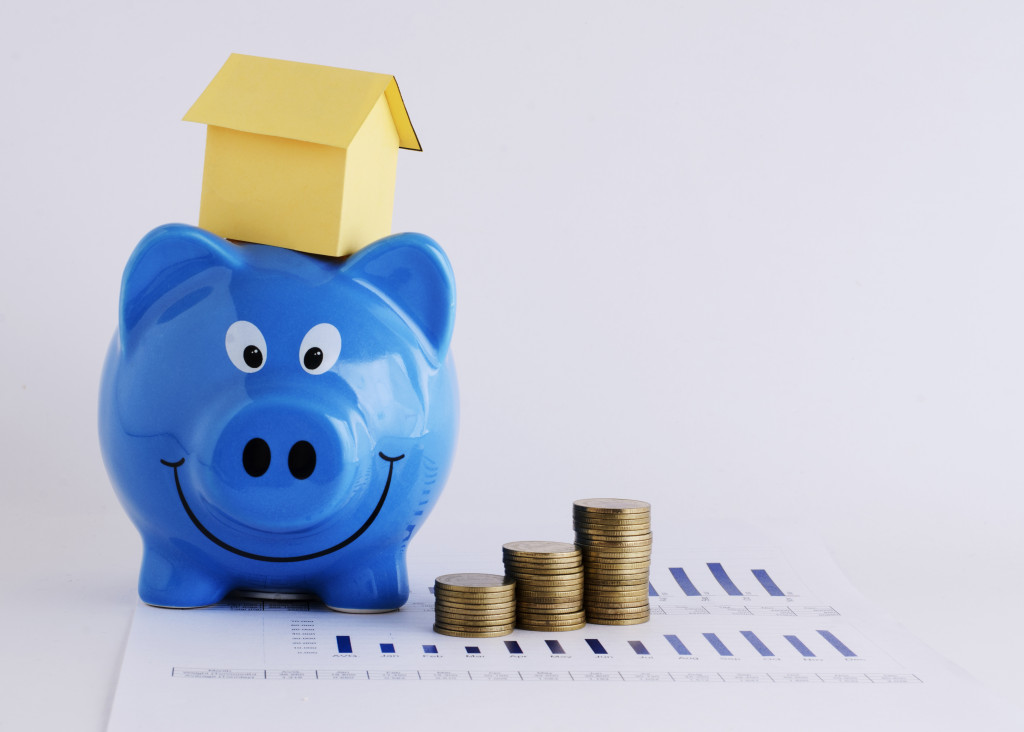Americans love investing. It’s part of the American dream and one of the main reasons people move to the United States. It’s estimated that about 58% of the population has invested in stocks. Stocks are a significant investment, and it’s an excellent way to make money, but they aren’t stable. Unfortunately, only a small amount of people invest in real estate.
Real estate is an excellent investment because it’s a physical asset that you can see and touch. It’s also a long-term investment, so you can “set and forget” it, unlike stocks that rapidly go up or down in value. Unfortunately, most people think that it’s too expensive to get started in real estate. But you already have investment the moment you’ve made the downpayment on your first house. That first investment comes in the form of equity.
What is Equity?
Equity is the portion of your home that you own. It’s the appraised value of your home, minus any outstanding mortgage or loan balance. For example, if your home is worth $300,000 and you have a mortgage balance of $200,000, your equity is $100,000.
As a homeowner, you can increase your equity in two ways. The first is by paying your mortgage balance.
Paying Your Mortgage
By paying down your mortgage balance. Every time you make a mortgage payment, a portion of that payment goes towards the principal (the actual amount borrowed), and the rest goes towards interest. So, let’s say you have a $200,000 mortgage with a 4% interest rate, and you’re making monthly payments of $955.
In the beginning, most of that payment is going towards interest. But as you pay down the principal balance, a more significant portion of your payment will go towards the principal, and less will go towards interest.
The second way to increase your equity is by the property’s value increasing.

Property Value Appreciation
Over time, the value of your home will likely increase. It can be due to many factors such as inflation, location, amenities, the economy, etc. For example, in five years, the value of your home has increased from $300,000 to $400,000. Then your equity would be $200,000 (the appraised value minus the mortgage balance).
Many celebrities have taken advantage of their home equity to get a leg up in their careers. For example, rapper 50 Cent used his home equity loan proceeds to finance his music career. And actress Jodie Sweetin was able to pay for her stint in rehab with the help of a home equity line of credit. Now, if you’re looking for ways to access your equity, you can do it in two ways: through a home equity loan or a home equity line of credit (HELOC).
Home Equity Loan
A home equity loan is a second mortgage on your property. Many reputable mortgage brokers offer this option for those who have paid most of their mortgages. You’re essentially taking out a new loan and using your home equity as collateral. The good thing about home equity loans is that they usually have lower interest rates than other loans such as credit cards or personal loans.
The downside of home equity loans is that they’re fixed-rate loans, so you’ll have the same monthly payment for the life of the loan (usually 5-15 years). And if you can’t make your payments, you could lose your home to foreclosure.
Home Equity Line of Credit (HELOC)
A HELOC is similar to a home equity loan, except it’s a line of credit that you can use as needed, up to a specific limit. Once you’re approved for a HELOC, you’ll have a credit limit, and you can borrow against that limit whenever you want, up to the limit.
HELOCs usually have variable interest rates, so your monthly payments can go up or down depending on market conditions. And like home equity loans, if you can’t make your payments, you could lose your home to foreclosure.
These are the well-known ways to access your equity, but let’s not forget about cash-out refinancing.
Cash-out Refinancing
With cash-out refinancing, you refinance your mortgage for more than the balance you currently owe. For example, let’s say you have a $200,000 mortgage with a 4% interest rate, and you want to refinance to get a lower interest rate. But you also want to take some cash out of your home equity. So you could refinance your mortgage for $250,000.
The downside of cash-out refinancing is that it resets the clock on your mortgage. So if you have 10 years left on your 30-year mortgage, you’ll have 30 years left on your loan. after cash-out refinancing. Plus, there are closing costs associated with this type of loan.
So there you have it! These are five ways to take advantage of your property’s equity. By increasing your equity, you can access more funds in an emergency or make upgrades to your home. Remember to be careful with taking out loans against your home equity because you could lose your home if you can’t make the payments.

